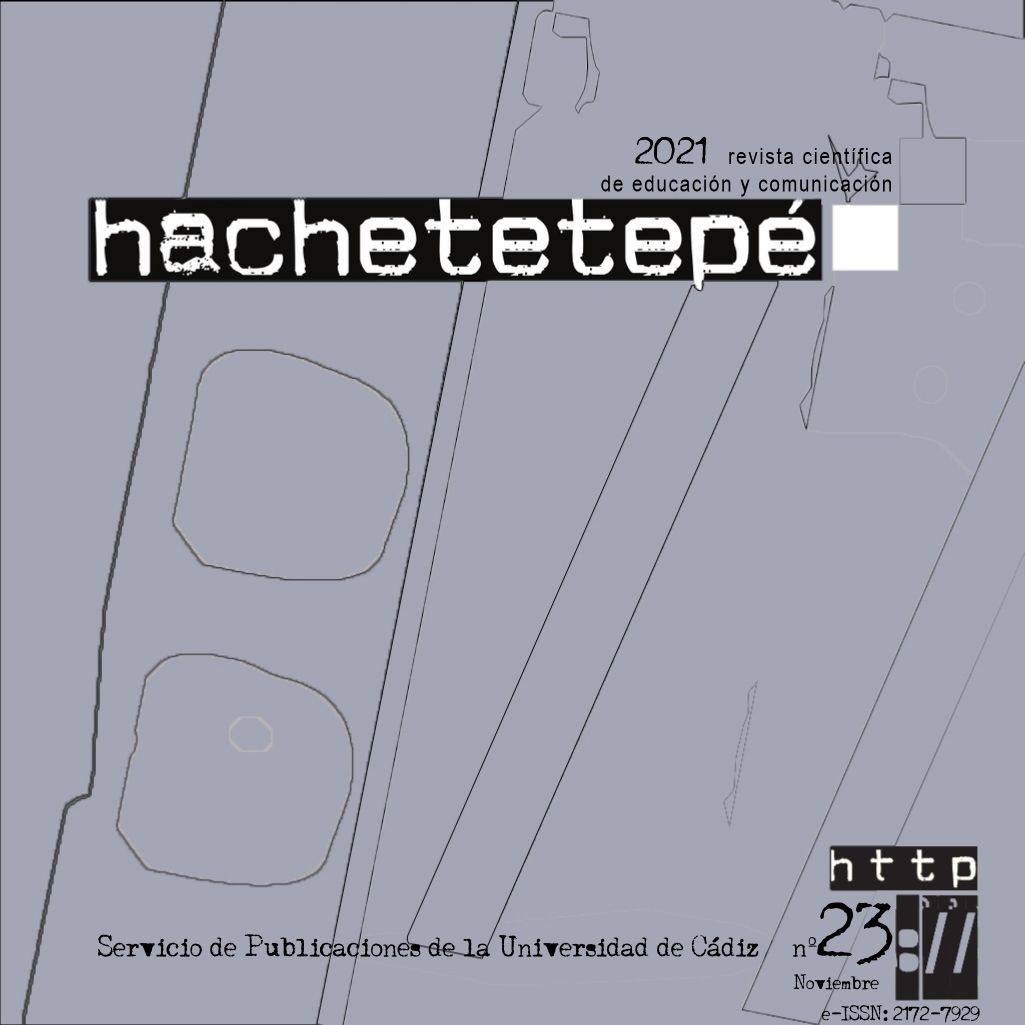La Covid-19, motor de cambio de la transformación educativa más grande de los últimos siglos

DOI
https://doi.org/10.25267/Hachetetepe.2021.i23.2203Información
Resumen
Los cambios en época de COVID han transformado la comunicación educativa hasta límites insospechados. La tecnología se ha adueñado de la literatura educativa o discurso literario de la educación hasta desfigurarlo, trastornando la visión tradicional de los centros de enseñanza y metamorfoseando hasta el propio desenvolvimiento de los profesores y sus hábitos, de modo que unos han desaparecido, y otros se transformaron adoptando giros de 180 grados. El objetivo de este estudio consiste en demostrar cómo se vive una de las transformaciones educativas más grandes de los últimos siglos. La metodología para elaborar este trabajo posee un carácter mixto, pero mucho más cualitativo que cuantitativo y las herramientas son artículos publicados casi todos a lo largo del 2020, así como observaciones directas de la propia experiencia en el campo de la educación, que es de donde se han podido extraer datos recientes. El resto es parte de la experiencia investigadora y de los conocimientos como educador universitario. Como conclusión, se puede llegar al fin de la escuela presencial tal y como la conocemos, aunque antes se vivirá durante algún tiempo un modelo puramente híbrido, como puede deducirse de la comparación o ejemplificación de la educación de países dispares de diferentes lugares del mundo.
Palabras clave
Descargas
Cómo citar
Licencia
Derechos de autor 2021 Antonio Rodríguez Jiménez

Esta obra está bajo una licencia internacional Creative Commons Atribución-NoComercial-SinDerivadas 4.0.
Aquellos autores/as que tengan publicaciones con esta revista, aceptan los términos siguientes:
- Conservarán sus derechos de autor y garantizarán a la revista el derecho de primera publicación de su obra, el cual estará simultáneamente sujeto a la Licencia de reconocimiento de Creative Commons. Se pueden copiar, usar, difundir, transmitir y exponer públicamente, siempre que se cite la autoría, la url, y la revista, y no se usen para fines comerciales. No se permite hacer obras derivadas.
- Podrán adoptar otros acuerdos de licencia no exclusiva de distribución de la versión de la obra publicada (p. ej.: depositarla en un archivo telemático institucional o publicarla en un volumen monográfico) siempre que se indique la publicación inicial en esta revista.
- Difundir su obra a través de Internet (p. ej.: en archivos telemáticos institucionales o en su página web) una vez que el manuscrito sea aceptado, lo cual puede producir intercambios interesantes y aumentar las citas de la obra publicada. (Véase El efecto del acceso abierto)
Hachetetepé. Revista científica de educación y comunicación no cobra honorarios ni por la presentación de manuscritos ni por la publicación de sus artículos.
Citas
Almazán Z., Loeza A., y López V. (2020). Aprender e Innovar en la pandemia. Revista El mundo de la educación, (17), 54-58.
Altavista, C. (2020). La pandemia que desnudó en toda su dimensión la desigualdad educativa. Periódico El Día. https://bit.ly/3jIDBHI
Baptista, P., Almazán, A., Loezo, C.A., López, V.A., y Cárdenas, J.L. (2020). Encuesta Nacional a Docentes ante el COVID- 19. Retos para la educación a distancia. Revista Latinoamericana de estudios Educativos, 50(1), 41-88. https://doi.org/10.48102/rlee.2020.50.ESPECIAL.96
Corral, D. y de Juan, J, (2021). La educación al descubierto tras la pandemia del COVID-19. Carencias y retos. Aularia: Revista Digital de Comunicación, 10(1), 21-28.
Correa, S. (2020). La innovación educativa en los tiempos del Coronavirus. Salutem Scientia Spiritus , 6(1), 14-26. https://bit.ly/3zMnjDd
Feito, R. (2020). Este es el fin de la escuela tal y como la conocemos. Unas reflexiones en tiempo de confinamiento. RASE Revista Sociología de la Educación, 13(2), 156-163. https://doi.org/10.7203/RASE.13.2.17130
Hybels, S. y Weaver, R. (1974). La comunicación. Logos, Consorcio Editorial.
Masami, I., y Murata, T. (2005). Plan de Estudios (Currículum). CRICED.
Ramírez, J. (1993). El sistema educativo japonés: sus características y la formación escolar de la población. Estudios de Asia y África, 28(3), 355-369. https://bit.ly/3DPz3Hj
Rogero-García, J. (2020). La ficción de educar a distancia. Revista de Sociología de la Educación-RASE, 13(2), 174-182. http://doi.org/10.7203/RASE.13.2.17126.






